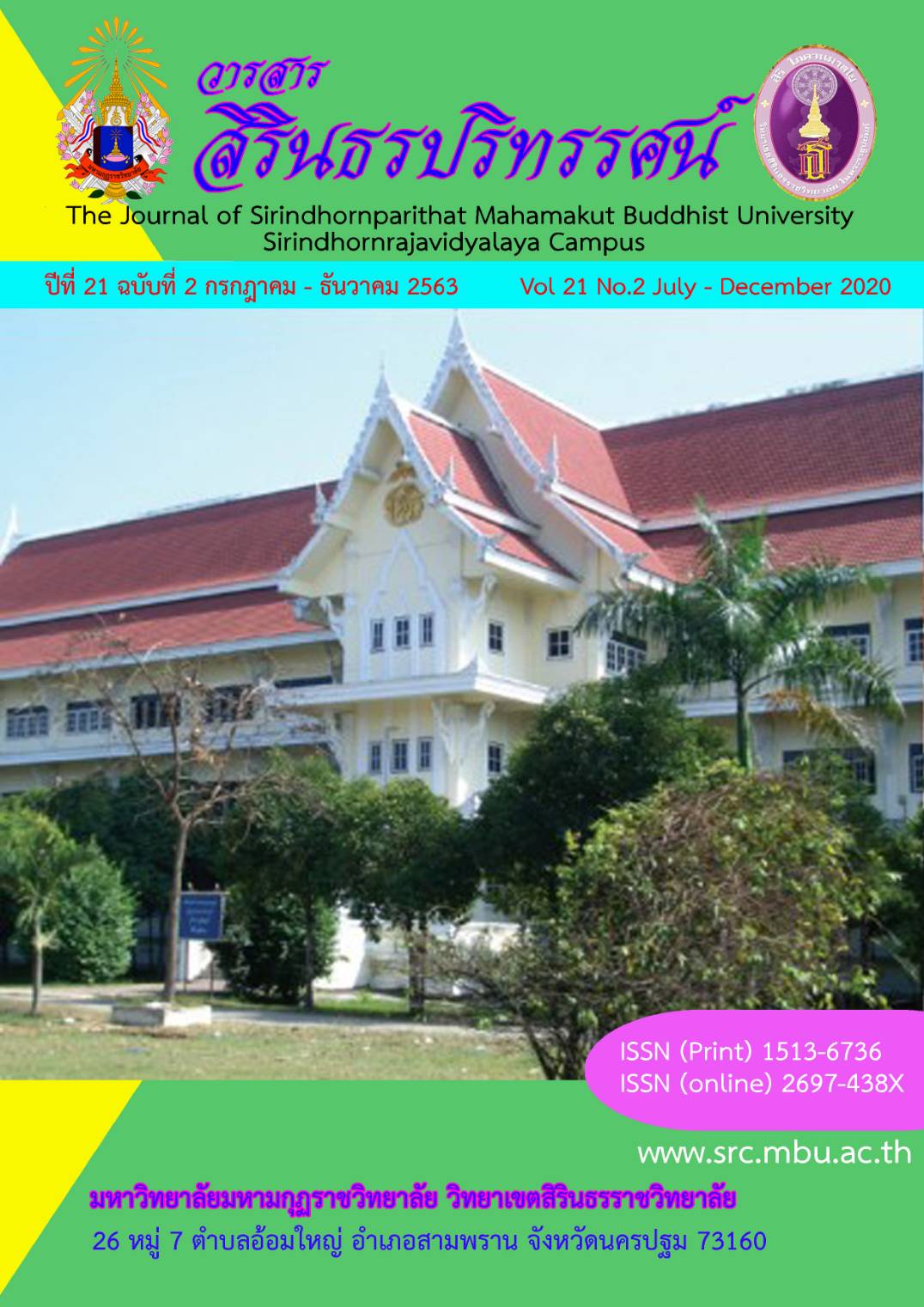Buddhist strategies adopted by country leaders in the country administration A case study of great-grandchild of a king Kukrit Pramoj and Mr. Anand Panyarachun
Keywords:
Buddhist principles, country leaders, background, environment, Buddhist strategiesAbstract
The objectives of the research on Buddhist strategies adopted by country leaders in the country administration: A case study of M.R. Kukrit Pramoj and Mr. Anand Panyarachun, are; 1. To analyze the background of the country leaders in adopting Buddhist strategies in the country administration, 2. To analyze the environment the country leaders in the country administration, 3. To synthesize the Buddhist strategies adopted by the country leaders in the country administration.
The conceptual framework used in this research consists of strategic management, leadership theory, and Buddhism principles. This research is qualitative using the tools for data collection including 1. An in-depth interview with the target group who are informants in the case study of M.R. Kukrit Pramoj and Mr. Anand Panyarachun, 2. Documentation by studying from the books, researches, and documents related to the topic and research scope.
The research results revealed that (1) since the Sukhothai period, Ayutthaya period, Thonburi period, Rattanakosin period in the reigns of King Rama I, King Rama IV, King Rama V, King Rama VI after the change of administration in 1932, in the case study of M.R. Kukrit Pramoj and Mr. Anand Panyarachun, the Buddhist strategies have been applied in the country administration in all eras. The research results revealed that (2) for the circumstance in the case of M.R. Kukrit Pramoj, the crises and social conflicts occurred. This is due to the expression of freedom in belief and ideology despite the anti-imperialist ideology of the USA. There was also a problem with the entry of communism and agriculture. Most farmers experienced difficulties because of their cultivation and the environment. In the case of Mr. Anand Panyarachun, the problem occurred in bidding for the state concessions. There were also problems with the tax system with a lot of flaws, natural resources, and the environment. The research results revealed that (3) Buddhist strategies adopted by the country leaders in the country administration in the case of M.R. Kukrit Pramoj were 1) Kalanukal Patiwissakakattiya Mettisamphanthupayakosala, to build a friendship with neighbors in a timely manner, 2) Chanapatthakammathanakaranapayok Upayakosala, to share resources for creating jobs in the countryside, 3) Kanti Withurasahakatapiyawaja, to negotiate professionally with patience. In the case of Mr. Anand Panyarachun, the strategies were 1) Dhammatchawa Wirotthanakamma, to work based on the principle of rightness, 2) Yonisomanasikarn Sahakatadhammanyu, 3) Chakumanusik Nissayasampanno, to foresee and use human relations.
References
จินตนา บุญบงการ และณัฎฐพันธ์ เขจรนันท์ . (2549). การจัดการเชิงกลยุทธ์ Strategic management. กรุงเทพฯ : ซีเอ็ดยูเคชั่น
จุมพล หนิมพานิช. (2551). ผู้นำ อำนาจและการเมืองในองค์การ. พิมพ์ครั้งที่ 3. นนทบุรี : มหาวิทยาลัยสุโขทัยธรรมธิราช.
ปกรณ์ ปรียากร. (2544). การวางแผนกลยุทธ์ แนวคิดและแนวทางเชิงประยุกต์. กรุงเทพฯ : เสมาธรรม
พระธรรมปิฎก. (ป.อ. ปยุตโต). (2546). ภาวะผู้นำ: ความสำคัญต่อการพัฒนาคน พัฒนาประเทศ. กรุงเทพฯ : สำนักพิมพ์ธรรมสภา
มหาจุฬาลงกรณราชวิทยาลัย. (2539). พระไตรปิฎกภาษาไทย ฉบับมหาจุฬาลงกรณราชวิทยาลัย. กรุงเทพฯ : โรงพิมพ์มหาจุฬาลงกรณราชวิทยาลัย.
สมบัติ ธำรงธัญวงศ์. (2545). การบริหารโครงการ. พิมพ์ครั้งที่ 2. กรุงเทพฯ : เสมาธรรม
สมบูรณ์ สุขสำราญ. (2534).รายงานผลการวิจัยเรื่องพุทธศาสนากับความชอบธรรมทางการเมือง : กรณี เปรียบเทียบประเทศไทย ลาว และกัมพูชา. กรุงเทพฯ : โครงการเผยแพร่ผลงานวิจัยฝ่ายวิจัย จุฬาลงกรณ์มหาวิทยาลัย.
Mintzberg, Henry. (1989). Mintzberg on management: inside our strange world of organizations. New York: Free Press
Leslie and Byars. (2000). Human Resource Management. Irwin: McGraw-Hill.
Pearce, J.A & Robinson, R.B. (2000). Strategic management. NJ: McGraw-Hill.
Robbins, S. P., & Coulter, M. K. (2007). Fundamentals of Management. (9 th ed.). Upper Saddle River, NJ: Pearson -Prentice Hall.
Downloads
Published
Issue
Section
License
บทความที่ได้รับการตีพิมพ์เป็นลิขสิทธิ์ของ มหาวิทยาลัยมหามกุฏราชวิทยาลัย วิทยาเขตสิรินธรราชวิทยาลัย
ข้อความที่ปรากฏในบทความแต่ละเรื่องในวารสารวิชาการเล่มนี้เป็นความคิดเห็นส่วนตัวของผู้เขียนแต่ละท่านไม่เกี่ยวข้องกับหาวิทยาลัยมหามกุฏราชวิทยาลัย วิทยาเขตสิรินธรราชวิทยาลัย และคณาจารย์ท่านอื่นๆในมหาวิทยาลัยฯ แต่อย่างใด ความรับผิดชอบองค์ประกอบทั้งหมดของบทความแต่ละเรื่องเป็นของผู้เขียนแต่ละท่าน หากมีความผิดพลาดใดๆ ผู้เขียนแต่ละท่านจะรับผิดชอบบทความของตนเองแต่ผู้เดียว




